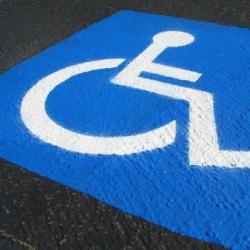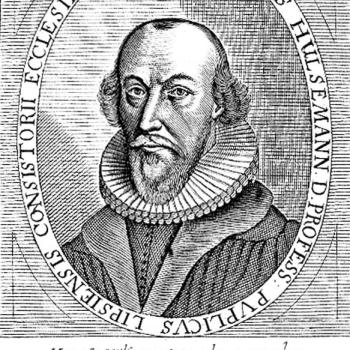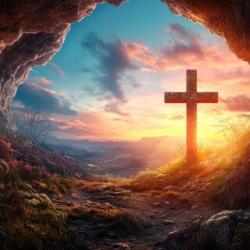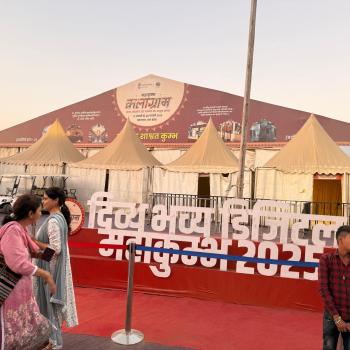Distrust lead to further misunderstandings. The same three authorities next interviewed Neil Poulsen. When he exited the room, he shook Harvey's hand, and they embraced. Bishop Isaacson, peering out of the interview room, misinterpreted their greeting and accosted them, exclaiming, "I caught you in your blood oath! That handshake of the secret pact won't do anything for you!"
However, these interviews did at last succeed in separating the wrongly accused Sister Wessel from the group suspected of complicity. She left sobbing from the strain of the ordeal as well as exhaustion. She had been up into the early morning hours listening to the arguments of concerned elders trying to convince her to stay on her mission. Her private quest to decide what to do had not yet been successful. Much of her confusion was caused by hearing too many arguments. The authorities seemed to her too upset to testify, and though she wanted to hear testimony, she did not say so. She knew that she did not want to be excommunicated, yet, hurt and confused, her desire to remain on her mission had been deeply shaken.
Harvey, also feeling rebuffed by the General Authorities, began to see excommunication as a possibility, although he still desired a testimony. He queried President Moyle during a break, asking him if he knew David O. McKay was a prophet. He was expecting a powerful statement of faith that would perhaps overpower and convince him; Moyle simply said, "Yes." Harvey dismissed this simple answer and chose rather to identify with his fellow defendants. He found comfort and companionship with them, though he did not yet share their doctrinal perceptions. Headstrong and swelling with youthful ardor, he began to accept the fact that he would be excommunicated because he did not "know."
Meanwhile the other French missionaries were attending a day-long testimony meeting at a local LDS chapel. Hugh B. Brown first addressed the group and then, beginning at 10:00 A.M., each individual missionary stood to testify. During a noon break, Apostle Brown asked four elders to accompany him to the mission home. H. Ray Hart, one of the four and the most recent companion of Elder Tucker, was not aware that they would serve as members of an excommunication court.
While President Brown and the four elders were in transit, a second general meeting of the still dissident missionaries was being held. Bishop Isaacson spoke first. He lambasted the group for secretly promulgating their beliefs. President Christensen then addressed the group with his most ardent appeal. Stephen Silver witnessed only an excited man shouting at them whereas H. Ray Hart, entering the mission home, said he recognized the voice of President Christensen, but it was unusually powerful, as if the Lord were speaking through him.
With the arrival of Apostle Brown, it was decided to hold the court immediately. The nine remaining dissidents requested a prayer circle. Bishop Isaacson refused, but President Moyle intervened and gave consent. The nine were left alone while the authorities went elsewhere to organize the court. The court convened, and Elder Hart was asked to pray. He found it very difficult because an awful spirit oppressed him, a spirit that seemed to him to desist as the trial progressed. President Moyle later explained to him that both the spirit of the Lord and the adversary were present, exerting their opposed influences.
Presiding at the court, Elder Moyle posed two questions: (1) "Do you sustain David O. McKay as a prophet, seer, and revelator of God?" and (2) "Do you want to be excommunicated?" Each participant responded individually. All nine ultimately answered no to the first question and yes to the second. Tucker and Silver argued with President Brown but with little result. Harvey did not argue. He remembers commenting that he would like to know the truth and have someone help him but that he felt no one would answer his questions, leaving him little choice but to be excommunicated. Noting his ambivalence, President Moyle invited Harvey to separate from the group and have his case reviewed individually. Harvey declined. He had finally cast his lot. The court lasted for several hours. The verdict, pronounced at 4:00 P.M., was: all nine excommunicated. President Christensen wrote later, "It was truly one of the most heart-rending things to ever come into my life, to see our brothers and sisters excommunicated from the Church for apostasy."
After the verdict was rendered, President Brown added that when they returned home he would welcome them to come to him if ever they felt he could be of help. Harvey remembered the promise.
The four elders and the authorities who had been serving on the court then returned to the testimony meeting which was still in session. In what one missionary termed a phenomenally dramatic moment, the excommunication was announced. Apostle Brown concluded the meeting at 8:00 P.M. with a discourse on the powers of the adversary and the future of the French Mission. He described what had happened as the worst missionary apostasy in the history of the Church and further confided that they had discussed the possibility of closing the mission but decided the temple dedication would provide the opportunity to cleanse the mission.




